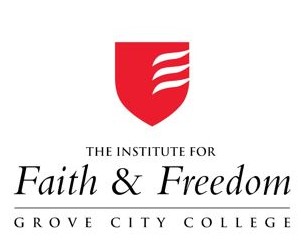A Weighty Subject: Dieting and Body Image in Pandemic Times

By Diane Medved
—
Instagram, TikTok and to a lesser degree Facebook have recently taken the fall for a host of emotional problems from which teens addicted to social media—even more since Covid—suffer. Constantly viewing images of “perfect” peers pressures insecure teens toward eating disorders and depression.
“Thirty-two percent of teen girls said that when they felt bad about their bodies, Instagram made them feel worse,” in-house researchers pasted on a Facebook internal message board investigated by the Wall Street Journal this September. They’d been studying the impact of their platforms with the aim to further enlarge their audiences. Already, 22 million teens check Instagram daily, and Facebook-owned platforms reap $100 billion annual revenue.
The Journal accessed “a trove” of internal communications, examining the company’s “teen mental health deep dive” research, based on focus groups, online surveys and diary studies from 2019 and 2020. The material showed Instagram as the platform most frequently fomenting teen disorders.
When asked by Sens. Richard Blumenthal and Marsha Blackburn to release its internal research, Facebook demurred, noting that the data kept confidential “to promote dialog” within the company. Sen. Blumenthal was not pleased. “Facebook’s answers were so evasive—failing to even respond to all our questions—that they really raise questions about what Facebook might be hiding,” he emailed the Journal.
But Facebook does want the favor of the public. It tried an experiment to eliminate “likes,” counts of which, they found, affected users’ self-esteem. Instagram head Adam Mosseri acknowledged the change made no difference in users’ feelings. The company floated ideas to replace beautifying selfie filters with “fun” ones, and reduce celebrity content. Someone the Journal called “a now-former employee” was quoted saying, “People use Instagram because it’s a competition. That’s the fun part.”
Instagram is but one contributor to a soaring prevalence of eating disorders during the pandemic. The National Eating Disorders helpline saw a 40 percent jump in call volume between March, 2020 and April, 2021, reports Lisa Damour in the New York Times. Of the callers, 35% were 13-17 years old, a 30% increase from the year before. The stress of coronavirus restrictions, exposure to a wide variety of internet and social media content and extra time in isolation drove many youth toward dieting and prolific exercise.
Terms have evolved to make weight loss more appealing, and now, twisting and curbing intake is commonly dubbed “healthy eating.” Even as our approval of diversity in race, religion and gender, and as part of that, fat acceptance, expands, the yearning to fit in a model-esque mold exerts harmful pressure.
I’ve followed the evolution of thinking on appearance, health and weight loss for more than 30 years. Conclusion: Some exciting science-based possibilities are emerging, but for most who struggle with appearance and food, little has changed.
When early in my career as a psychologist, I became interested in the field of weight loss, fad diets were sure bets for the best-seller lists. I happened to practice in Beverly Hills, California, and the most wildly popular diet of the period was named for that very town. Judy Mazel’s 35-day food-combining Beverly Hills Diet topped the charts for thirty weeks, instructing readers to contort their consumption, starting with a week of only fruit, then progressively adding in—within specified rules of what goes with what—carbs and proteins.
One of my clients was an accomplished actress, quite thin and vivacious, who described to me a history of food compulsions and bouts of dieting, until her research led her to the conclusion that trusting the body’s natural signals of hunger and satiation could produce (in her) a relaxation about food, and ultimately her body’s ideal weight.
I was intrigued. As a teenager, despite never having weight issues, I’d subscribed to dictates by popular magazines and the relatively limited media of the time, weighing myself relentlessly, and restricting my calories lest the mirror not present an acceptable reflection. Talking and then working with this young woman, followed by reading an enormous stack of books plus hours in the university library coalesced into a practical process with written materials (put to paper on my fancy Correcting Selectric typewriter) designed to move clients to ease with both their emotional and physical needs. Though letting go of societally imposed strictures was too difficult for many who came to my workshops, the ones who “got it” (and my program did include before-and-after assessments) usually ameliorated their food and appearance obsessions.
The diet book world continues to thrive. “Covid 15” is the buzz-word for snacking one’s way through fear and isolation, and a report by the American Psychological Association says 61% of American adults “experienced undesired weight changes since the start of the pandemic.” Of those, women gained an average of 22 pounds during the year since lockdown began, while men averaged an increase of 37 pounds. Thus we find on our grocery shelves items marked with the word “Keto,” as if that alone qualifies food fit for purchase. We seek out “plant-based” products that mimic meat and dairy. We gobble probiotics and supplements designed to shape our biome as well as our torsos. And we click “buy” for books telling us to fast—revealing the “secret” that not eating can cause weight loss.
Is there a cure? Has there ever not been a raft of “cures”? Long before “Intuitive Eating” (1995) and “Health at Every Size” (2010) my “Free from the Fat Mentality” program (1982) eschewed dieting in favor of trusting body signals, eating only when hungry, stopping when satisfied, enjoying food and appreciating one’s body. Also central is meeting the psychological needs that eating fulfills, in direct and constructive ways, judging from food cravings exactly what those emotional needs are. Over the years, it’s been rewarding to write about it for “women’s magazines,” lecture and lead workshops.
Recent research is revealing some fascinating new possibilities.
For example, we know body size involves more than just genes and will power—but did you know that if you happen to catch a cold virus called Adenovirus 36, you may end up with the souvenir of permanent obesity? In 1980, as obesity rates began to rise alarmingly, researchers identified a suspect virus. Scientists were amazed, and did multiple studies manipulating and measuring “Adv36” in animals, and separately, looking for its markers in obese people. A 2015 survey of the ample literature in the journal Viruses says blatantly: “Adv36 causes obesity in animals. In humans, Adv36 associates with obesity in both adults and children.” After a robust start, research in the field has slowed down, though a few studies over the last couple years confirmed that infection with this virus does promote obesity, with inquiry now determining whether it triggers expression of particular “obesity genes.” Wouldn’t it be great if scientists developed a vaccine against the virus that leaves you fat?
Also recent is research reported in Geekwire that the Institute for Systems Biology here in Seattle found bacterial genes in the gut affect success in losing weight. Study leader Sean Gibbons and his team DNA-sequenced the stool of participants in a wellness program. Compared to subjects whose weight remained stable, “researchers found that people who lost weight had a different gut composition to start with,” Geekwire wrote. The bacteria associated with weight loss, “Prevotella,” could someday be introduced into patients’ biomes to prime them for reduction. A first step in that direction is already in the works, with Nordstrom stores partnering with local startup Viome Life Sciences to soon sell $199 kits. Upon analysis of a stool sample, customers will receive algorithm-driven suggestions for diet and supplements.
Ripe for research are what I deem the “whys”: Why do some people turn to food as a “neck-up tranquilizer” while others don’t? Why is it two comparable individuals eating the same amount are different natural sizes? A fascinating YouTube series addressing that topic was the BBC production, “Why Are Thin People Not Fat?” in which naturally thin people were told to eat twice the calories they needed, with changes documented along the way. Spoiler alert: even after six weeks stuffing themselves, they didn’t get fat.
There’s a lot to say about weight, health and eating, and no end to products, pundits and programs eager to profit from the anxiety and desperation size and food consumption create. A recent New York Times article discusses Aubrey Gordon’s “Maintenance Phase” podcast, where the “wellness-industrial complex” is dissected and debunked. Perhaps we ought to make wellness less complex, turning inward to recognize the foods, activities, and especially people who bring us pleasure and joy.
Diane Medved, Ph.D. is a psychologist, speaker and author of seven books, most recently Don’t Divorce: Powerful Arguments for Saving and Revitalizing Your Marriage. She can be seen in her Seattle suburb walking (and picking up litter) with her husband, author and radio host Michael Medved, and at least some of their three children and four toddler grandchildren. Reach her at DianeMedved.com.



















